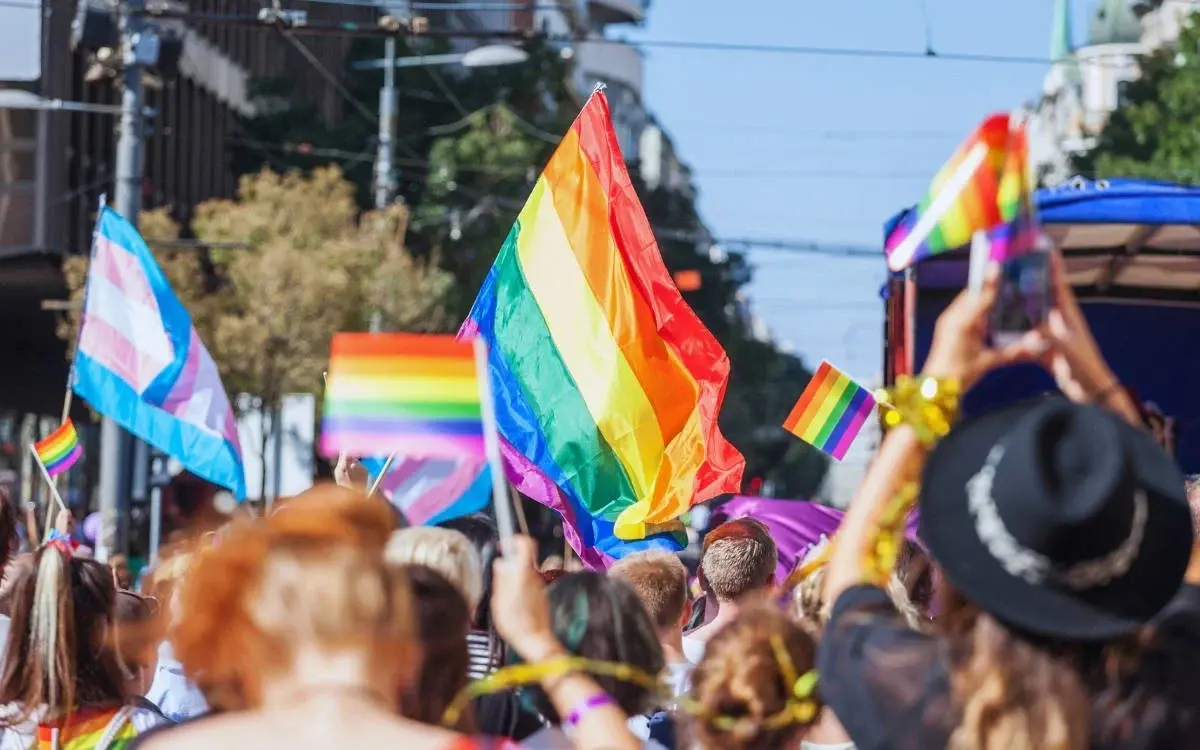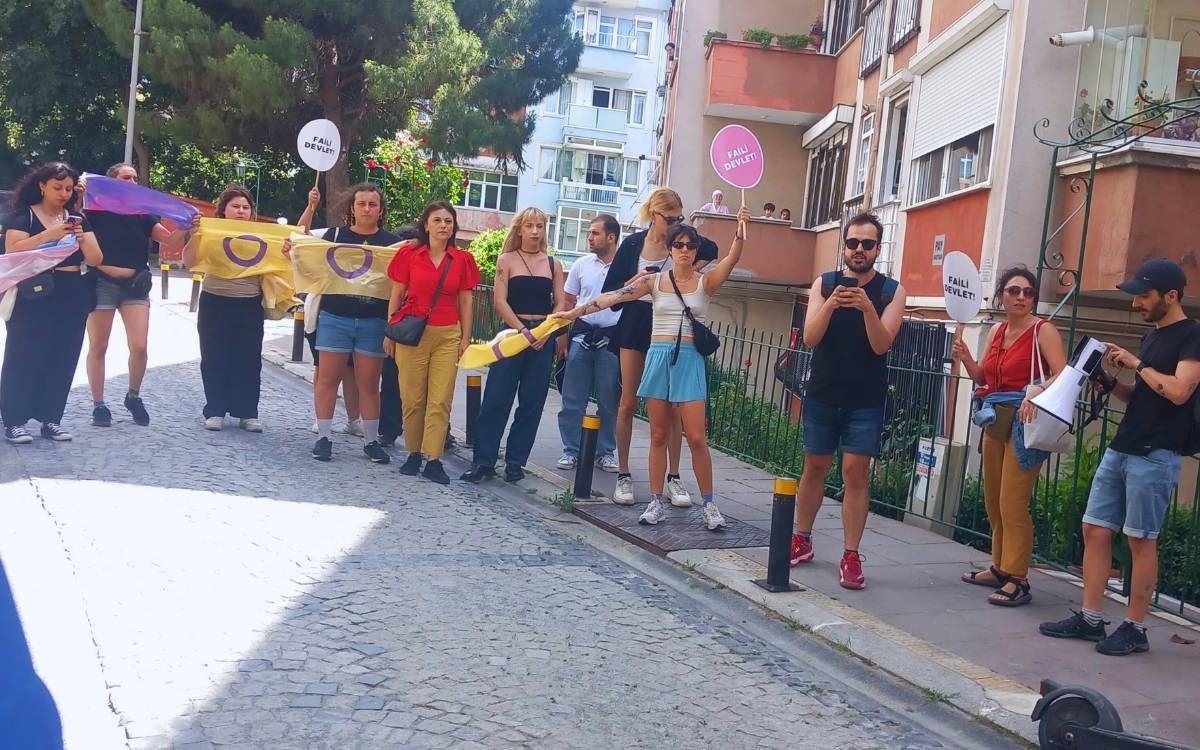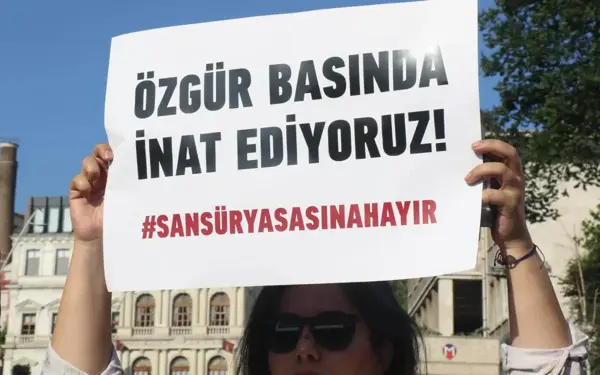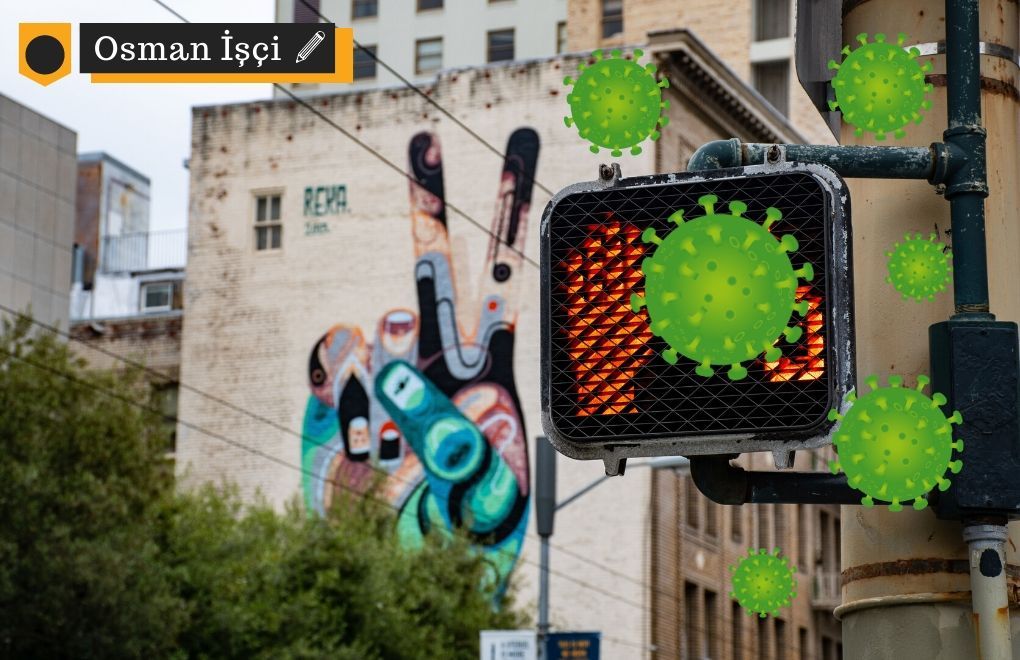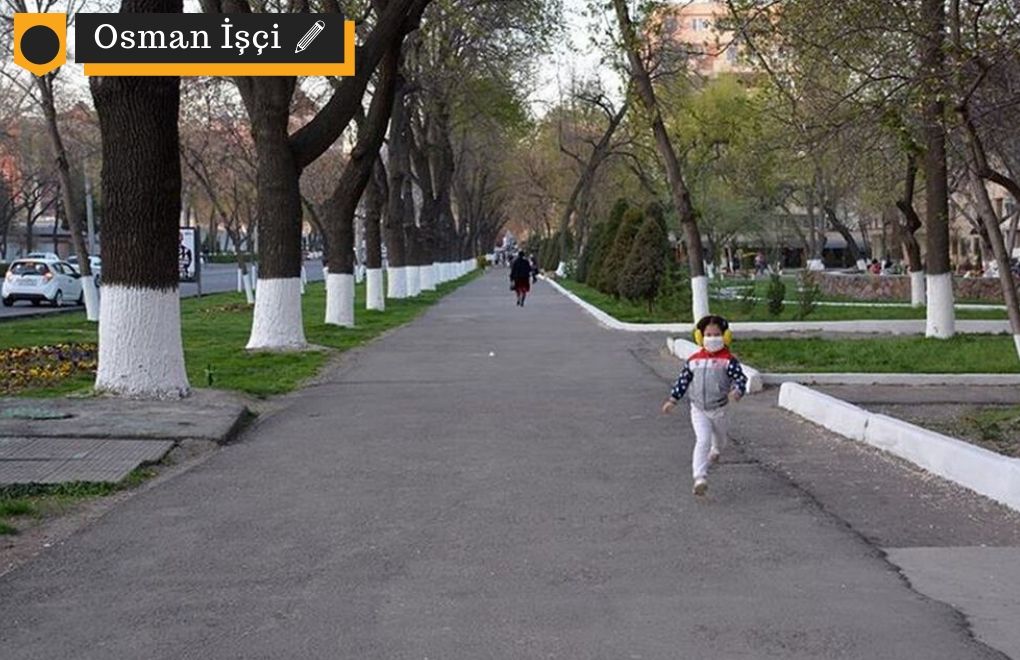“They don’t give us the right to live. My family doesn’t accept me. Bye.”
These last words of Helin, a trans woman who committed suicide in Edirne on the night of June 5, still echo in my mind. Helin’s words clearly show that what she experienced was contrary to the essence of the Universal Declaration of Human Rights.
Adopted on Dec 10, 1948, and translated into more than 500 languages to date, this declaration is built on fundamental values such as human dignity, freedom, equality, and fraternity. Unfortunately, these values did not touch Helin's life. A life worthy of human dignity is only possible in an environment where individuals and communities are free, not only feel equal, but where equality is also guaranteed. The principle of brotherhood in the declaration also gains meaning only when the other values are meaningfully put into practice.
The unheard scream
Helin could not bear the difficulty of existing as herself even within her own family and left us with the words, “Goodbye.” This two-word farewell was a cry that took Helin away from us. In fact, it was a cry. Unfortunately, we do not hear this cry enough.
An isolated issue?
Another sad reality is that Helin's experiences were not the first or the only ones. The İstanbul Pride Week and Trans Pride Week committees also drew attention to the structural aspect of this situation in their statement, emphasizing that what happened was not individual but systematic.
The committees stated that Helin's death was linked to the lack of inclusive policies in areas such as health, education, employment, and housing. At the same time, the impact of hate speech against LGBTI+s was also highlighted. For this reason, Helin's suicide is directly linked to the policies implemented and is considered a political murder.
It is difficult to resist pressure as an individual
Problems that prevent participation in social life, especially problems accessing vital services such as healthcare, affect LGBTI+s more. The most recent study on this subject is from the Office for National Statistics in the UK. According to the study published on April 9, the rate of intentional self-harm among gay, lesbian, bisexual, and people of other sexual orientations in the same age group is 1,508.9 per 100,000 people, while among those who identify as heterosexual, the rate is 598.4 per 100,000 people.
In a study conducted in England and Wales between Mar 2021 and Dec 2023, the suicide rate in the same group was 50.3 per 100,000 people, while it was 23.1 per 100,000 people among heterosexuals. In other words, the suicide rate among LGBT+ individuals is 2.2 times higher than that of heterosexuals.
The factor of feeling unsafe
As expected, these results are only related to the data obtained. The fact that the data does not reflect the entire situation is also related to the feeling of insecurity experienced by LGBTI+s: they are reluctant to disclose their sexual orientation. Additionally, some participants in the study may not have shared certain experiences. This indicates that the actual situation may be more severe than what has been reported.
The study issues a very important warning, stating that “it is not possible to say that these data alone are a random factor in terms of intentional self-harm or suicide based on sexual orientation.”
While reading this study from the UK, I thought about the structural issues in education, health, employment, housing, and other areas mentioned in the statements by the İstanbul Pride Week and Trans Pride Week committees. Whatever the underlying cause, the fact that a segment of society is losing more lives and deliberately harming itself clearly demonstrates the need for the state and all relevant public authorities to carry out work targeting these groups in order to prevent and reduce these cases.
Attacks on LGBTI+ rights are attacks on human rights
In April, the Hungarian Parliament passed a bill banning Pride marches. Passed with 140 votes in favor and 21 against, the bill was drafted on the grounds that Pride marches are “harmful to children.” Similarly, pressure on LGBTI+s continues in Russia. Websites are being blocked, and the press is publishing manipulative news stories on the subject. Two other countries that keep LGBTI+s under pressure through legislation are Iraq and Ghana. Both countries have passed laws that punish same-sex relationships with up to 15 years in prison.
Following his re-election, US President Donald Trump has adopted a more repressive stance in many areas. Trump is targeting LGBTI+s and issuing presidential decrees that could lead to their exclusion from society.
Although these countries are different from one another, the commonalities in their attacks on LGBTI+s show us one thing: the level of protection of LGBTI+ rights is directly proportional to the standards of democracy and human rights.
In this context, we can say that the global trend toward authoritarianism has negatively affected the rights and freedoms of LGBTI+s, as it has in other areas of human rights. The main findings of the global survey published on Jun 10 by IPSOS and prepared by Melissa Dunne also point in this direction. For example, the percentage of support for brands that make LGBTI+ rights visible was 49% in 2021, but has fallen to 41% this year. This decline in support for brands is a reflection of the adoption of laws that restrict this area.
Countries influence each other
In its assessment covering the period Jan-Dec 2024, ILGA Europe summarizes the current situation of LGBTI+s in Europe under five main headings:
- Restrictions in legislation (Bulgaria, Georgia, Montenegro, Hungary, etc.)
- Changes to the education curriculum in parallel with these restrictions (Bulgaria, Hungary, Italy, Romania, the Netherlands, Russia, etc.)
- The normalization of the consequences of hate speech (Ireland, Romania, Hungary, the United Kingdom, Georgia, etc.)
- Arbitrary rejection of asylum applications by LGBT+ individuals (Austria, Belgium, Ireland, etc.)
- Despite repressive government practices and efforts to scapegoat LGBT+ individuals, courts are still able to deliver good decisions.
- The last heading demonstrates how important and functional the rule of law is in terms of democracy and human rights standards, as well as the protection of LGBT+ individuals' rights.
Turkey is among the countries where LGBTI+s are invisible and their rights are seriously violated. Human rights organizations such as İHD, KaosGL, Amnesty International, and ÜniKuir carry out reporting and advocacy activities against these repressions.
Solidarity in the face of repression
The oppression of LGBTI+s is the result of a deliberate and coordinated policy. In this case, the protection of LGBTI+s' human rights must also be coordinated. Activists, human rights organizations, media outlets, and politicians working in this field should come together more often to exchange views, share experiences, and develop a roadmap.
It would take pages to explain everything that needs to be done, but in summary:
- Approaching LGBTI+ rights on the basis of human rights,
- Enacting and enforcing laws that are consistent with human dignity,
- Effectively monitoring to identify shortcomings, and
- Ensuring that the judiciary is an effective remedy based on the rule of law are some of the steps that need to be taken.
Essentially, the statement in the article that “attacks on LGBTI+ rights are attacks on human rights” can also be read as: the protection of LGBTI+ rights is possible through the protection of human rights. (Oİ/TY/VK)






